#African Trade Ministers
Explore tagged Tumblr posts
Text
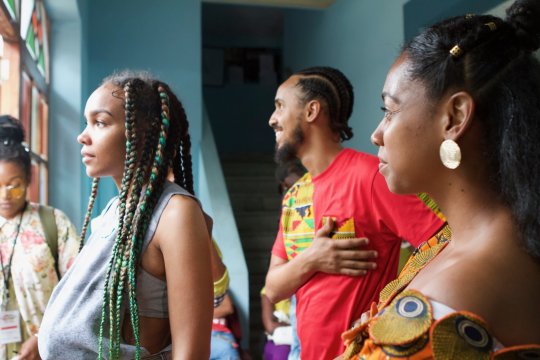
According to Dr. Yvonne Chireau, "Hoodoo is an African American-based tradition that makes use of natural and supernatural elements in order to create and effect change in the human experience."

Hoodoo was created by African Americans, who were among over 12 million enslaved Africans from various Central and West African ethnic groups being transported to the Americas from the 16th to 19th centuries (1514 to 1867) as part of the transatlantic slave trade. The transatlantic slave trade to the United States occurred between 1619 and 1808, and the illegal slave trade in the United States occurred between 1808 and 1860. Between 1619 and 1860 approximately 500,000 enslaved Africans were transported to the United States.

From Central Africa, Hoodoo has Bakongo magical influence from the Bakongo religion incorporating the Kongo cosmogram, Simbi water spirits, and Nkisi and Minkisi practices. The West African influence is Vodun from the Fon and Ewe people in Benin and Togo following some elements from the Yoruba religion. After their contact with European slave traders and missionaries, some Africans converted to Christianity willingly, while other enslaved Africans were forced to become Christian which resulted in a syncretization of African spiritual practices and beliefs with the Christian faith.
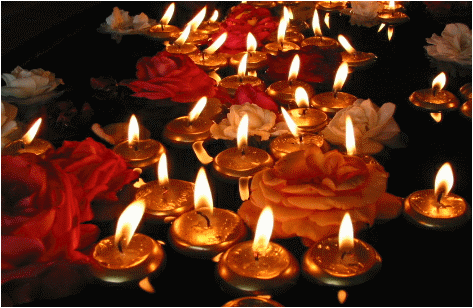
Enslaved and free Africans learned regional indigenous botanical knowledge after they arrived to the United States. The extent to which Hoodoo could be practiced varied by region and the temperament of the slaveholders. For example, the Gullah people of the coastal Southeast experienced an isolation and relative freedom that allowed retention of various traditional West African cultural practices. Gullah people and enslaved African-Americans in the Mississippi Delta, where the concentration of slaves was dense, Hoodoo was practiced under a large cover of secrecy. The reason for secrecy among enslaved and free African Americans was that slave codes prohibited large gatherings of enslaved and free African people. Slaveholders experienced how slave religion ignited slave revolts among enslaved and free African people, and some leaders of slave insurrections were African ministers or conjure doctors
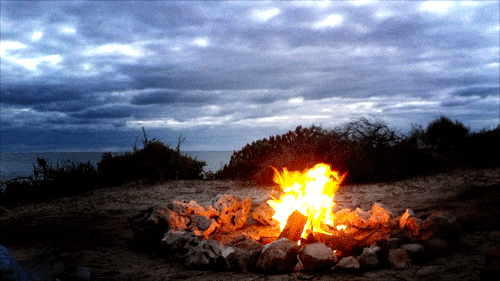
#african#afrakan#kemetic dreams#africans#brownskin#afrakans#brown skin#african culture#afrakan spirituality#bakongo#congo#conjure#ancestor veneration#rootwork#hoodoo#nkisi#simbi#botanical#botanic garden#gullah#gullah geechee#gullah gullah island#mississippi#mississippi delta#slave codes#vodun#cosmogram#yoruba#america#african american
194 notes
·
View notes
Text
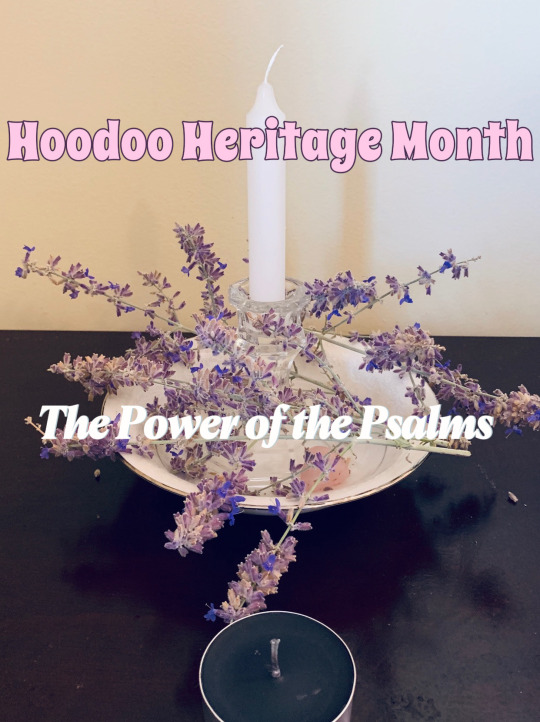
BIBLIOMANCY: THE PSALMS 📖🔮🕯️
During the many centuries of American history, Black African Americans had contact with various different religions and ethnic cultures ie; multiple Indigenous Tribes, Jews, Appalachians, Dutch, Swedes, Caribbeans, Haitian Kreyols and many more, through the Chattel Transatlantic Trade an land migration. These pivotal interactions are introduced the assimilation of many ritual practices. Hoodoo is a multiculturally mixed practice, with many nuances and intersections. It reflects the attitude and practices of many different generations, cultivated, passed down and preserved. While purists believe in keeping Hoodoo strictly traditional, the realist and preservationists, see Hoodoo as a constantly evolving and cunning art form, always adaptable to the times. Throughout the 1600 - 1900s, multiple different denominations of the Abrahamic faiths were wide spread through the United States influencing Black American folk magic and way of life.
Bibliomancy was already a common folk practice at and slowly making into the consciousness of Black American folk Magick.
The first book printed in North America to contain the psalms was The Bay Psalm Book, published in 1640 in Cambridge, Massachusetts by Minister an Planation Owner, Joseph Glover, who was well known for being the pioneer of printing in the English colonies and was one of the co-founders of Harvard University. Without sufficient historical evidence we can only speculate that this is the it’s one possible origins of the usage of the psalms in Black American Folk Magick. Glover was a Rector aka a parish priest for the Church of England and was decently educated. It is highly likely during his studies in England he had access to Jewish Psalm Prayer Books which inspired him to publish one of his own, when he came to America. There were also a small afro-jewish populations and various intersectional social connections with the black community, with the Jewish, Catholic and other various Christian religious denominations that were also clear influences.
The Church was a place of indoctrination but also social relief, community and emotional escapism for Black Americans during these times. Throughout the centuries the Indoctrination of the Church became the only source of solace and safety for Black American mental health & society during ever shifty and dangerous social climates. Deeply imbedding itself into consciousness of the black community, subconsciously and consciously, which we can still see in modern times.
As the ability to read and write increased within the black community, in addition to the growth of printing more books access to reading the Bible and the Psalms became easier and easier. Now the Psalms were seen as a powerful book of spells in African American folk magick, with a multitude of different uses. Psalms could be scratched in the mud, written on doorways, or just simply spoken or prayed over folks, tools, plant allies, talismans, mojo bags, roots, other items, water, candles and more. The intent could be love, justice, abundance, peace and even hexing. Eventually, this belief trickled down to usage of other verses, from other Bible, an influenced African American communities, all over the country. Each community like their own little tribes, some with similar or different practices and rituals, regionally.
In practice, The power of the psalms was unmatched, people swore by it by its success rate and still do to this day, which is why the practice has stuck in modern times.
The Psalms were a vehicle of rejuvenation and life, these scriptures were considered living words of power. I’ll go into the sacred mythos behind that, for members of my Patreon, later on this month.
For some Black Americans it’s easy to overlook and even discard the power of bibliomancy especially when they have deep religious trauma when it comes to any Abrahamic faith (Baptist, Catholic, Christian, Cogic etc) which is understandable. These feelings are valid & practicing Hoodoo, means understanding the many intricate nuances of the intersection and history of this folk culture. Others also see the value in Bibliomancy and continue this ancestral practice in modern times, knowing two things can be true at once. There is a great deal of duality in Hoodoo, which is something many of us have come to accept and honor at the same time. Respecting this balance demands a deep sense of self and cultural respect, a discerning eye and great deal of empathy, whether practitioners like it or not.
Using the Psalms is a powerfully easy way to reconnect and heal with ancestral Black American practices and medicine. It’s not a requirement of course, but it’s fun to encourage other black Americans to practice and discover all of its hidden powers. Many African folk practices, were hidden out of survival, requiring a level of covert cunning. Bibliomancy was a clever way hide in plain sight without attracting too much attention. Think of our ancestors as secret agents of truth, justice with a covert strategic mentality that still has important place in modern times. Some magick requires a keen mind, good sense, without calling any attention to itself, teaching us the practice of self control and discipline. This is why the practice of bibliomancy is important, allowing you to tap into this energy and honor your ancestors and yourself.
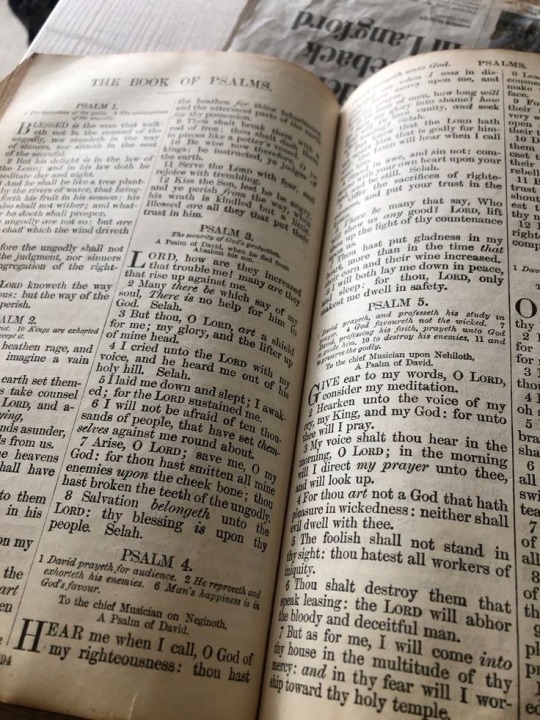
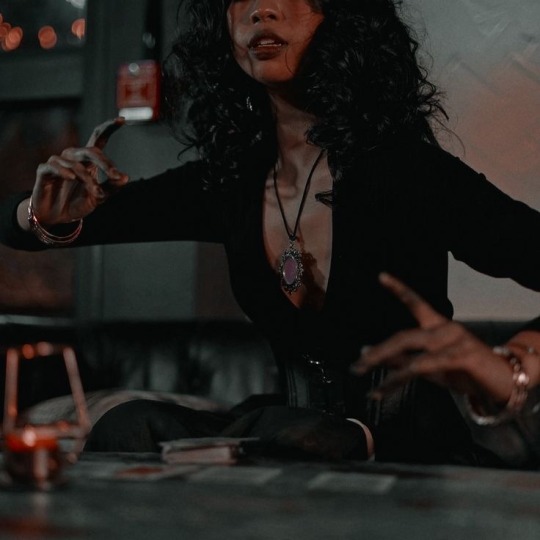
Examples of Bibliomancy
Psalms 54 - Help In Times Of Need. Mastering Negative Thoughts, Revenge Against Enemies.
Psalms 60 - Put The Past Behind You.
Psalms 41 - Help With Money Troubles
Psalms 23 - Protection, Abundance, Stability & Healing
HAPPY HOODOO HERITAGE MONTH ✨
🕯️🕯️🕯️
#hoodoo#salem#black community#black culture#black history#hoodoo community#psalms#bibliomancy#witches of color#black spirituality#spirituality#witch community#witchcraft#african american history#folk magick#occult#jewitch#rootworker#witchesofcolor#black americans#black witches#pagans of tumblr#witchblr#conjure#black american history#black american culture#black femininity#pagan community#witch history#hoodoo heritage month
31 notes
·
View notes
Text

Happy Feast Day
Saint Peter Claver
1581-1654
Feast Day: September 9
Patronage: Missionary work, black missions, slaves, against slavery, race relations, African Americans, inter-racial justice, foreign missions, against slavery
Saint Peter Claver, a Spanish Jesuit was inspired by St. Alphonsus Rodriguez to go to the Indies and save “millions of perishing souls”. In 1610 he traveled to Cartagena, Columbia, the slave trade center, and ministered to slaves, sailors and townspeople. He provided medical treatment, food, spiritual instruction, and baptism to over 300,000 souls and continued to guide them afterward. He fought for the abolition of slavery. St. Peter Claver died after 4 years of illness.
Prints, plaques & holy cards available for purchase here: (website)
43 notes
·
View notes
Text
Patrice Lumumba was the first elected Prime Minister of the Congo. He ascended to power in the Congo on June 30, 1960, the date of Congo’ s independence from Belgium. Within ten weeks of being elected, Lumumba’s government was deposed in a coup. He was subsequently imprisoned and assassinated on January 17, 1961 by Western powers (United States, Belgium, France, England and the United Nations) in cahoots with local leaders such as Moise Tshombe and Joseph Desire Mobutu.
Lumumba is a member of the Tetela ethnic group. He was born on July 2, 1925, in Katako-Kombe in the Sunkuru district of the Kasai Province. Growing up, Lumumba attended a Protestant Missionary school as well as a Catholic missionary school and became a part of the educated elite called évolués. Lumumba contributed to the Congolese press through poems and other writings. His occupations included a postal clerk in Kinshasa and an accountant in Kisangani. Lumumba’s organizational involvement were varied. He served as head of a trade union of government employees, he was active in the Belgian Liberal Party and in 1958, Lumumba founded the Congolese National Movement (MNC in French). Also in 1958, he was invited to the first All-African People’s Conference in Accra, Ghana, organized by Kwame Nkrumah. He met nationalists and pan-africanists from various African countries and became a member of the permanent organization set up by the conference.
Lumumba’s party won national elections in May of 1960 which led to his ascendancy to Prime Minister on June 30, 1960. Read more on Lumumba>>
Lumumba’s Independence Day Speech Lumumba’s Last Letter to his Wife
Reading List Congo My Country by Patrice Lumumba Patrice Lumumba: Fighter for Africa’s Freedom by Patrice Lumumba The Assassination of Lumumba by Ludo De Witte Rise and Fall of Patrice Lumumba by Thomas Kanza Lumumba Speaks: The Speeches and Writings of Patrice Lumumba, 1958-1961 Translated by Helen R. Lane. Ed. Jean Van Lierde
88 notes
·
View notes
Text
Christmas pudding [...] [is] a boiled mass of suet - a raw, hard animal fat [...] often replaced with a vegetarian alternative - as well as flour and dried fruits that is often soaked in alcohol and set alight. [...] [I]t is a legacy of the British Empire with ingredients from around the globe it once dominated [...].
Christmas pudding is a relatively recent concoction of two older, at least medieval, dishes. [...] “Figgy pudding,” immortalized in the “We Wish You a Merry Christmas” carol, appeared in the written record by the 14th century. [...] During the 18th century, the two ["plum pottage" and "figgy pudding"] crossed to become the more familiar plum pudding – a steamed pudding packed with the ingredients of the rapidly growing British Empire of rule and trade. The key was less a new form of cookery than the availability of once-luxury ingredients, including French brandy, raisins from the Mediterranean, and citrus from the Caribbean.
Few things had become more affordable than cane sugar which, owing to the labors of millions of enslaved Africans, could be found in the poorest and remotest of British households by mid-century. Cheap sugar, combined with wider availability of other sweet ingredients like citrus and dried fruits, made plum pudding an iconically British celebratory treat, albeit not yet exclusively associated with Christmas.
Such was its popularity that English satirist James Gillray made it the centerpiece of one of his famous cartoons, depicting Napoleon Bonaparte and the British prime minister carving the world in pudding form.

In line with other modern Christmas celebrations, the Victorians took the plum pudding and redefined it [...], making it the “Christmas pudding.” In his 1843 internationally celebrated “A Christmas Carol,” Charles Dickens venerated the dish as the idealized center of any family’s Christmas feast [...].
Three years later, Queen Victoria’s chef published her favored recipe, making Christmas pudding, like the Christmas tree, the aspiration of families across Britain.
Christmas pudding owed much of its lasting appeal to its socioeconomic accessibility. Victoria’s recipe, which became a classic, included candied citrus peel, nutmeg, cinnamon, lemons, cloves, brandy and a small mountain of raisins and currants – all affordable treats for the middle class. Those with less means could either opt for lesser amounts or substitutions [...]. Eliza Acton, a leading cookbook author of the day who helped to rebrand plum pudding as Christmas pudding, offered a particularly frugal recipe that relied on potatoes and carrots. [...] The high alcohol content gave the puddings a shelf life of a year or more, allowing them to be sent even to the empire’s frontiers during Victoria’s reign [...].
---
In the 1920s, the British Women’s Patriotic League heavily promoted it – calling it “Empire Pudding” in a global marketing campaign. They praised it as emblem of the empire that should be made from the ingredients of Britain’s colonies and possessions: dried fruits from Australia and South Africa, cinnamon from Ceylon, spices from India and Jamaican rum in place of French brandy.
Press coverage of London’s 1926 Empire Day celebrations featured the empire’s representatives pouring the ingredients into a ceremonial mixing bowl and collectively stirring it.
The following year, the Empire Marketing Board received King George V’s permission to promote the royal recipe, which had all the appropriate empire-sourced ingredients. Such promotional recipes and the mass production of puddings from iconic grocery stores like [Sains-bury's] in the 1920s combined to place Christmas puddings on the tables [...].
---
All text above by: Troy Bickham. "How the Christmas pudding, with ingredients taken from the colonies, became an iconic British food." The Conversation. 8 December 2023. [Bold emphasis and some paragraph breaks/contractions added by me. Image and caption shown unaltered as they appear published by Bickham along with the article's text.]
55 notes
·
View notes
Text
"When I first went to Jamaica in 2012 as a graduate student studying the environmental politics of the Maroons, an Afro-Indigenous community who freed themselves from enslavement in the 18th century and established an autonomous society in the mountainous interior of the island, Chinese overseas development policy seemed irrelevant to my work. Yet as my field research progressed over the following eight years, first as a doctoral student in African diaspora studies and then as a post-doctoral researcher, the impact of Chinese infrastructural development and extractive industry on the Jamaican people and environment became increasingly apparent.
The timing of my field work overlapped with an unprecedented surge in Chinese economic and diplomatic engagement with Jamaica and the Caribbean as a whole.
(...)
It is beyond the scope of this article to detail the political economic dynamics and immense social impact of debt in Jamaica over the last 40 years.4 Suffice it to say that the island became a byword for structural adjustment during this period, with every new loan from the World Bank, or default on payments thereof, coming with International Monetary Fund-mandated austerity.
Health and education were notable casualties of this socio-economic assault. By the start of my field research, Jamaican child mortality had almost doubled over the span of a single decade while completion of primary school dropped from 97% to 73% in the same period. This despite the fact that Jamaica had already repaid more money than it had been lent, with continuing debt servicing accounting for a 106% debt-to-GDP ratio according to the latest World Bank figures.
All this is only a small snapshot of the catastrophic outcomes of debt wielded as a tool of neocolonialism.
With the island’s status as one of the most indebted countries on the planet, Chinese infrastructural development was received with fanfare from Jamaican elites, a possible economic lifeline out of the debt trap.
(...)
Jamaican elites may appreciate that they can pay back debts with land, and that China does not directly require broad policy changes like the structural adjustment conditions of IMF and World Bank loans.
However, even with the above and the fact that the Jamaican debt to China is small compared to that claimed by Western IFIs and private firms, Jamaican politicians are growing increasingly wary of the costs of doing business with China. In November 2019, Prime Minister Andrew Holness announced that Jamaica would no longer borrow from China, a scant seven months after formally joining the BRI.
As usual, most Jamaicans are not privy to the inter-governmental discussions and deals driving these decisions, but their government’s newfound reticence in engaging with China reflects deeper concerns among BRI partners that the initiative is a debt trap.
(...)
Almost two decades of Chinese loans and infrastructure-led development have left Jamaican workers and farmers as precarious and dispossessed as ever. The hard-fought and generational struggle for Jamaican workers’ power (trade unions were instrumental to Jamaica’s independence struggle) has been curtailed and rolled back by China’s transposed sovereignty.
Furthermore, Chinese mining interests appear poised to pick up where their Western counterparts left off in terms of irreversible ecological destruction and threats to indigenous survival. Certainly, Jamaica cannot bear another 50 years of capitalist exploitation and extractive industry.
If there is any hope in turning this dire situation into revolutionary momentum, it will be in Jamaicans making common cause with the Chinese laborers imported to the country. According to China Labor Watch, Chinese workers on overseas BRI projects are often subject to “deceptive job ads, passport retention, wage withholding, physical violence and lack of contracts” to the extent of constituting forced labor and human trafficking.
In fact, at least one Chinese worker in Jamaica has already blown the whistle on such conditions. Unfortunately, as of the time of writing this article, there appears to be no organized effort to make solidaristic alliances among Jamaican workers, Chinese workers, and Maroons. The Maroons are organized as an indigenous community seeking land and sovereign rights, rather than workers seeking class emancipation, and remain locked in a fractious political battle with the Jamaican state toward those ends.
Furthermore, the cultural and language barriers between Jamaicans and imported Chinese workers are significant. Yet both countries have rich revolutionary traditions. If Jamaican labor militancy and Maroon struggle were able to reconcile and align their interests, while cultivating strategic allies among the heavily exploited Chinese workers, a powerful relationship of international solidarity from below could be forged."
...
41 notes
·
View notes
Text
[Nikkei is Private Japanese Media]
China's Belt and Road Initiative (BRI) came at the "right time" for boosting Africa's development, a top African Union (AU) official told Nikkei Asia, as he played down concerns that it was a debt trap for poor countries. Last week, Beijing said it would ramp up the decade-old infrastructure drive to build ports, roads and railways by pushing into the digital realm, as the multibillion-dollar program becomes China's key foreign policy tool for influence in developing nations. Chinese President Xi Jinping's renewed focus on industrialization, agriculture and talent development was also just what the continent needs, said Albert Muchanga, head of trade and industry for the African Union Commission, the AU's Ethiopia-based secretariat.
"China will continue BRI, at the same time there is a complementary effort to support us in those three areas. ... Both came at the right time," Muchanga said in an interview on the sidelines of last week's Turkey-Africa Business and Economic Forum in Istanbul. "Africa was making massive investments in developing infrastructure, connectivity, telecommunication systems as well as energy facilities [when BRI launched] and that helped quite a lot." "We need to start the process of adding value on the continent to push industrialization," added the former Zambian diplomat.[...]
Asked if Western powers were being drawn to Africa in competition with China, Muchanga replied, "Well, they are reacting to it, which is good." He also questioned growing criticism that the BRI's massive infrastructure loans and an opaque structure have saddled some recipient countries with unsustainable debt. Some $76.8 billion worth of Chinese overseas loans were renegotiated or written off between 2020 and 2022, according to U.S. research firm Rhodium Group, compared to $17 billion in the preceding three years. "When you discuss with the scholars from China and other people, I think there's an acknowledgment that if we demonstrate greater transparency, I think some of the allegations that are made may not be well founded," Muchanga said, without elaborating.
AU member nation ministers will gather in November to adopt a critical minerals strategy, the official said, adding that the commission is working on a document for approving its new leaders at a summit scheduled for February. "We are responding to the issue of green transition by coming up with a critical minerals strategy," he said, "but the message is to come and produce at source to contribute to decarbonization."
16 Oct 23
57 notes
·
View notes
Text
🤡🤡🤡
oh my god this new dutch government is going to be an absolute clownshow. a summary, based on https://www.nrc.nl/nieuws/2024/06/13/politieke-ervaring-genoeg-in-het-kabinet-schoof-maar-soms-is-de-benoeming-wel-heel-verrassend-a4856356
Likely to be the new ministers:
Asylum and migration: right wing extremist who falsely tweeted that a stabbing incident suspect had a "north african appearance" (racist), granted contracts to her son's company worth thousands of euros (corrupt), has been in the Tweede Kamer for a year but has never asked a formal question, written amendmends or filed a motion (freeloader)
Housing: opposed the 'Law for Affordable Rent'. enough said.
Foreign trade and developmental aid: right wing extremist, founded a news channel that broke the journalistic code by spreading fake news, conspiracy theories and climate denial
Education, Culture and Science: evangelical in a group that aims to convert Jewish people to christianity, tasked to make education on sexuality 'more neutral' (conservative)
Economics: right wing extremist with close ties to the right wing, conservative Hungarian government
Agriculture, Fishing, Food security (used to be food safety) and Nature: believes biological farming should be stimulated 'by the market, not the government'
At least one right wing extremist nominee got written off after it was discovered that he'd been arrested for illegal weapon possession and has been marked 'dangerous to the state'. I couldn't make this shit up if i tried.
There are so many ways this can all go wrong, and I can only hope it does so in a way that blows up the government coalition and not the vulnerable people affected
17 notes
·
View notes
Text
"The resistances to slavery were the principal grounds for the radically alternative political culture that coalesced in the Black communities of the eighteenth and nineteenth centuries, the era of revolutionary, liberal, and nationalist impulses among Europeans in North America. Among Blacks, the rule of law was respected for its power rather than for any resemblance to justice or a moral order. For the slaves, the rule of law was an injustice, a mercurial and violent companion to their humiliations, a form of physical abuse, a force for the destruction of their families, and an omnipresent cruelty to their loved ones. Even for free Blacks, the rule of law was too often a cruel hypocrisy, impotent in protecting their tenuous status. For both the slaves and the free Blacks, even as revolutionary fervor increased among the colonists, the masquerades of the law were becoming more transparent: the domestic slave trade displaced the African slave trade in the late eighteenth century. With this new economy of slavery, the separation of slave families by sale and the kidnapping and enslavement of free Blacks increased astronomically.
To the very contrary, the rebellious colonial ruling class sought to invest the rule of law with a moral authority sufficient to justify their rejection of British authority. As slave traders and merchants, as slaveholders and propagandists, as lawyers, ministers, and civil authorities for slavery, the most influential men and women among the emergent American community used the rule of law as the warrant for the justness of their claims and practices. By their law they hunted, traded, bought, and sold other human beings; waged war against, whipped, dismembered, burned, hanged, and tortured their property for possessing a human will; treated their colonist servants and laboring classes with the customary disdain of the English gentle classes. Now this same law was to serve their revolutionary ambitions, their right to liberty.
On this score, the Blacks, particularly the slaves, possessed conflicting opinions. The 5,000 Blacks who fought for American independence fought for liberty, and had a very different vision of national freedom than the one imagined by their countrymen. But as we shall see, many thousands of Blacks would fight against independence, not for love of imperial Britain but because they understood that Black freedom was otherwise unobtainable. Like the Native American nations that sided with the British, the Black Loyalists sought to employ the British army to serve their own interests, for their own ends. Long after the defeated British had departed, their allies, the Native Americans and the Blacks, continued the struggle for liberty. For generations to come, Native Americans recognized America as a colonial power, and Blacks read the new nation as tyrannical. Their suspicion of and opposition toward American society survived in the political cultures of Blacks and Native Americans for the next two hundred years."
Cedric Robinson, Black Movements in America (1997)
16 notes
·
View notes
Text
Putin Hosts BRICS Leaders, Showing He Is Far From Isolated
(Bloomberg) -- President Vladimir Putin is playing host to Russia’s biggest gathering of world leaders since the invasion of Ukraine and using the BRICS summit to show the US and its allies that he’s no pariah.
With Russian troops advancing in eastern Ukraine and evidence of growing war fatigue among some of Kyiv’s allies, the Kremlin is seizing its opportunity to cast Putin as standing up to the West in attempting to reshape the global order. The US and its Group of Seven partners dismiss the argument, though it’s a message that resonates with some countries of the emerging world.
Leaders of 32 countries, as well as top officials of regional organizations and United Nations Secretary-General Antonio Guterres, will attend the three-day summit starting Tuesday in Kazan, Kremlin foreign policy aide Yuri Ushakov told reporters.
Chinese President Xi Jinping, Indian Prime Minister Narendra Modi, and South African President Cyril Ramaphosa are joining Putin alongside leaders of the new BRICS members, Iran, Egypt, the United Arab Emirates and Ethiopia. Putin plans bilateral meetings with many of them, as well as with guests such as Turkish President Recep Tayyip Erdogan.
Brazilian President Luiz Inacio Lula da Silva on Sunday canceled his plans to attend the summit after suffering a head injury in an accident at his home. Officials said he’ll participate by video link.
While BRICS favors greater use of national currencies in bilateral trade, members including India reject attempts to promote China’s yuan as an alternative reserve currency.
***WAKE UP!! This is NOT good for the US Dollar..
10 notes
·
View notes
Text
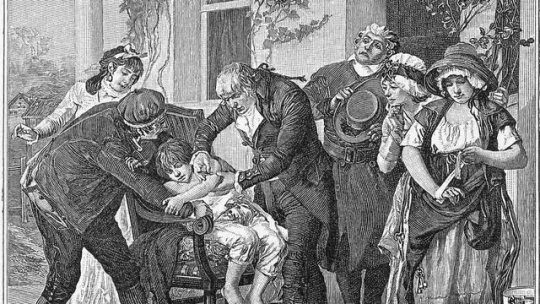
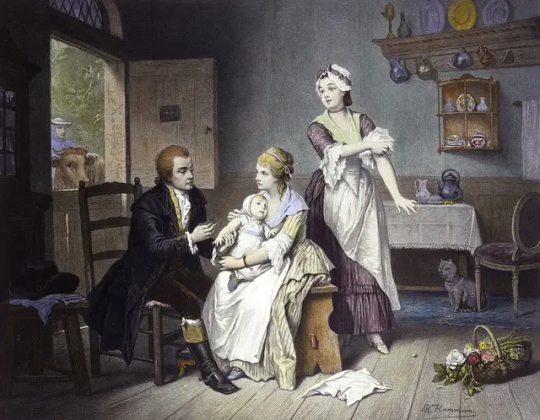

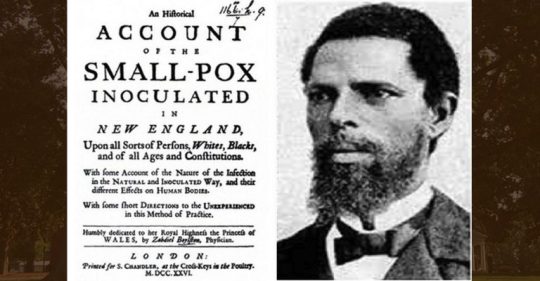
Onesimus (late 1600s–1700s) was an African man who was instrumental in the mitigation of the impact of a smallpox outbreak in Boston, Massachusetts. His birth name is unknown. He was enslaved and, in 1706, was given to the New England Puritan minister Cotton Mather, who renamed him. Onesimus introduced Mather to the principle and procedure of the variolation method of inoculation to prevent the disease, which laid the foundation for the development of vaccines. After a smallpox outbreak began in Boston in 1721, Mather used this knowledge to advocate for inoculation in the population. This practice eventually spread to other colonies. In a 2016 Boston magazine survey, Onesimus was declared one of the "Best Bostonians of All Time"
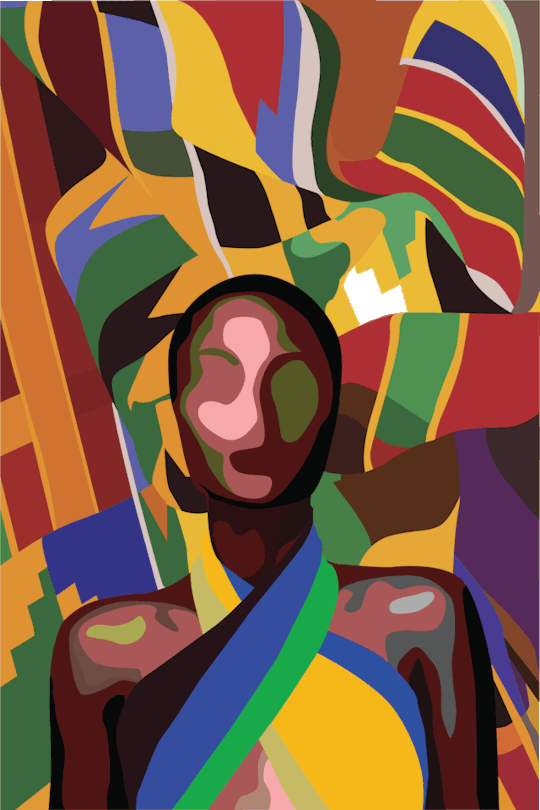
Onesimus's name at birth and place of birth are unknown with certainty. He was first documented as living in the colonies in 1706, having been brought to North America as an enslaved person. In December of that year, he was given as a gift by a church congregation to Cotton Mather, their Puritan minister of North Church, as well as a prominent figure in the Salem Witch Trials. Mather renamed him after a first-century AD enslaved person mentioned in the Bible.The name, "Onesimus" means "useful, helpful, or profitable".
Mather referred to the ethnicity of Onesimus as "Guaramantee", which may refer to the Coromantee (also known as Akan people of modern Ghana).
Mather saw Onesimus as highly intelligent and educated him in reading and writing with the Mather family (for context, according to biographer Kathryn Koo, at that time, literacy was primarily associated with religious instruction, and writing as means of note-taking and conducting business)

In 1716 or shortly before, Onesimus had described to Mather the process of inoculation that had been performed on him and others in his society in Africa (as Mather reported in a letter): "People take Juice of Small-Pox; and Cut the Skin, and put in a drop." In the book, African Medical Knowledge, the Plain Style, and Satire in the 1721 Boston Inoculation Controversy, Kelly Wisecup wrote that Onesimus is believed to have been inoculated at some point before being sold into slavery or during the slave trade, as he most likely traveled from the West Indies to Boston.

The variolation method of inoculation was long practiced in Africa among African people.
The practice was widespread among enslaved colonial people from many regions of Africa and, throughout the slave trade in the Americas, slave communities continued the practice of inoculation despite regional origin.
Mather followed Onesimus's medicinal advice because, as Margot Minardi writes, "inferiority had not yet been indelibly written onto the bodies of Africans."

#african#afrakan#kemetic dreams#africans#brownskin#brown skin#afrakans#african culture#afrakan spirituality#smallpox#vodun#obeah#margot minardi#ghana#akan#Salem Witch Trials#smallpox outbreak in Boston#Massachusetts.#Coromantee#puritans
114 notes
·
View notes
Note
Wait, what? Could you explain the M and India UK thing?
It all dials back to the Commonwealth and uk- india ties in terms of it. So, a little background - commonwealth was the second international organization/group joined by India after the UN. But the commonwealth was the first it joined as an independent sovereign state. Now at that time india was one of the first countries who put forth the demand that republics should also be able to join the CW and countries like them should not be expected to keep the monarch as the head of the state to be a condition for joining what is being called a voluntary organization. Because if they keep the monarch as the head of state, then the whole idea of independence from colonization loses its meaning. So the Indian leaders at that time put forth the demand that republics should be allowed in too, and these countries will be a part of the CW but no authority of the UK or the head of atate/monarch will extend to them. That was accepted because it was a fair demand and made sense. Hence, india joined the CW.
Even back then i.e post indepence in 1947 till the time of the london declaration in 1949, there was a lot of debate and controversy over the whole joining buisness and even then a large section of politicians and leaders were like this is stupid, why are we going back under their influence after having a 100 year long struggle to get out of it. But the then government including Jawaharlal Nehru (my fav Indian pm) who was his own foreign minister, were like India will need to have some sort of connection and some sort of ties with other nations internationally to make sure it can work in the global world. And even today, the Commonwealth forms the bedrock of india's contemporary relations with a number of African states and its dealings with canada, australia, etc.
JLN and his interim government agreed with the influence argument so they put forth the demand for the joining of republics with their own heads of states. It was agreed upon by the UK. But even after that, since india's independence a large section has been against the Commonwealth with the same arguments and people,intellectuals, politicians like shashi tharoor, the southern state CMs, some North Indian parties feel that India should leave the CW.
Now flash forward to the wedding in 2018, meghan came out wearing a veil embroidered with the national flowers of all the CW states, including guess which ones? The republics which are sovereign!!! Including - india (lotus), Pakistan (jasmine) and Bangladesh (water lily)
This thing was picked up by journalists and they ran with it on social media and in newspapers that the royals still think we are theirs. The whole of South Asian twitter was a mess, everyone was criticizing the UK, asking for the high commission to be summoned in front of parliamentary committes to see why they thought it was okay. In india politicians from both sides - the ruling bjp and the opposition parties jumped in. It basically became a f*ck CW, f*ck UK narrative. Now add to this the whole history of colonization and that makes it even worse.
The whole problem that people had with it was that, despite nearly 75 years of independence, UK still thinks we are theirs so why don't we kick them to the curb, we don't need the CW to have trade and other diplomatic ties with other states anymore. Pakistan, Bangladesh etc also had the same issues but it was the most amplified in india.
So in the official circles, for the first time, formal demands were being made that India should leave CW in 2018 because of that Givenchy wedding outfit and the attitude which it must have accompanied. It was always a thing in india, on the fringes of politics, to leave the CW as an agenda for some sections, but nobody ever took any initiative for it except making statements. The government didn't do it formally because let's be honest, 2018 was just a year off the next national elections and they had bigger fish to fry back then but I know it was pretty much a done deal as per the news coming out from 'sources' close to the cabinet, plans were being made. But it was sorted out later, a lot of it because bjp shares common ties with the Tories in the UK so they could smooth it over.
16 notes
·
View notes
Text
Is China a part of the global south?
Beijing certainly thinks so. For instance, at the recently concluded Forum on China-Africa Cooperation, a conference held every three years between China and African leaders, Chinese President Xi Jinping spoke of the global south’s “shared path toward modernization.” China has set up a development fund containing the term “South-South.” And Foreign Minister Wang Yi has also explicitly stated more than once that China is and will always be a member of the global south.
Though the terms used have changed over time, China’s rhetorical embrace of the developing world is not exactly new. Its roots go back to the early years of Chinese Communist Party rule. After the revolutionary fervor of the early 1950s subsided somewhat, China participated in the historic 1955 Bandung Conference that brought Asian and African leaders from recently decolonized countries together in a common front against global inequities. In 1964, Premier Zhou Enlai, Mao Zedong’s righthand man, formulated China’s Eight Principles for Economic Aid and Technical Assistance to Other Countries. Mao’s own worldview defined two “intermediate zones” between the United States and the Soviet Union, the latter zone comprising Asia, Africa, and Latin America.
The intermediate zones framing later morphed into the Three Worlds theory in 1974. In a conversation with Zambian President Kenneth Kaunda, Mao defined the “Third World” as including Africa, Latin America, and all of Asia, except Japan. This brief reference was elaborated on at length in a famous speech by Deng Xiaoping to the U.N. General Assembly in the same year, in which he said: “China belongs to the Third World.”
Mao, like many of his contemporaries, defined the Third World in predominantly economic and postcolonial terms. The framing made sense in the 1970s, when China was among the world’s poorer countries. The average Chinese lived no better, and in some cases worse, than the wide swath of recently decolonized countries.
Fast-forward to today, and much has changed. A different understanding of the meta-region stretching from Latin America to Southeast Asia and the Pacific Islands is needed—and in turn, China’s place within it must be reconsidered.
In this meta-region, 45 states that the United Nations has dubbed “least developed countries” remain mired in poverty and, in some cases, state failure. But about 80 others have grown substantially. Many, especially in Asia, made globalization and capitalism their own and turbocharged growth with corresponding social investments. They industrialized, integrated with the global economy, and built respectable levels of domestic infrastructure.
China itself is among the biggest beneficiaries of this transformation—from a country that experienced state-induced famines during the disastrous 1958-62 Great Leap Forward to now a highly industrialized, upper-middle-income country.
As economies diverge and the colonial era recedes into the past, the term “global south” has gained currency, especially since Russia’s invasion of Ukraine in 2022. It is best described as a “geopolitical fact,” a vast middle that sits outside the great-power system made up of the three great powers and core U.S. allies in Europe, East Asia, and Australasia. The “rest” have achieved varied levels of economic and social development but remain outside the select club of core alliances and global rulemaking. By definition, therefore, a great power cannot be a part of the global south.
China’s sheer size; high levels of GDP, trade, investment, and increasingly innovation; and successful military modernization mean that it now qualifies as a great power. It has joined Russia and the United States in this select category—though the United States is clearly the most powerful of the three and Russia barely makes the grade.
China is indeed working closely with a few global south states on major issues, for example with Brazil on a Ukraine peace plan, and as a part of the BRICS grouping. But Beijing’s global south rhetoric, while drawing on a real shared history, is today a stratagem, designed to win influence among the developing world and further its aims of influencing the global order. If anything, China’s emergence as a great power opens the door for a divergence from the global south on three important fronts: trade and investment, climate, and geopolitics.
Divides on trade are already visible. Middle-income global south countries such as Indonesia and Chile have recently slapped tariffs on Chinese imports as China has increasingly shifted into advanced manufacturing. Jakarta has just banned a giant Chinese online retailer, citing threats to local businesses. Mexico wants to reduce Chinese imports in its supply chain. Concerns over local trade have also triggered actions against Chinese imports in Brazil.
Meanwhile, Beijing’s flagship investment program, the Belt and Road Initiative, has become much smaller and more targeted of late, with spending falling off sharply as a slowing China focuses more at home. China is also on the “other side” when it comes to negotiating debt relief with poorer states in the G-20’s Common Framework, an odd position for a nation that claims to still be developing.
China and the global south have historically cooperated closely on climate change in the G-77+China coalition. They routinely push the U.N. principle of “common but differentiated responsibilities” (CBDR) and legitimately demand much greater climate finance commitments from wealthy states. The CBDR principle puts the onus on financing the energy transition on the global north, since wealthy countries have been the dominant contributors to destructive climate change due to their much larger cumulative carbon emissions. Unsurprisingly, Washington tends to minimize or ignore CBDR in climate negotiations.
But China’s own emissions have risen to the point that it has itself become a major contributor to not only annual but also historical emissions. With 14.7 percent of the global share, China now ranks third in cumulative emissions since 1750, not far behind the United States and the European Union. (The leading global south emitter, India, comes in much lower at nearly 3.4 percent.) The CBDR principle puts China on the side of wealthy states much more than developing countries.
China could justifiably point to its already significant efforts as a source of climate finance. But it will resist what should be a logical shift in its status and oppose formally taking on climate finance targets.
China and the global south may also yet diverge on the broader geopolitical plane. Highly militarized U.S.-China competition can destabilize the global order and risk major conflict; it is therefore not in the global south’s interests. Any actions by Beijing contributing to regional or global destabilization will not be welcomed in the global south. (The same is true for any such behavior by Washington.)
But China’s relative weakness compared with the United States, and an economic slowdown at home, also creates incentives for a revived G-2 in order to craft updated rules of global governance. Xi seemed to propose exactly this last year.
Washington is currently in no mood to engage in such a conversation with Beijing due to China’s perceived threat to its global primacy, sharp differences over Taiwan, and the Russia-Ukraine war. But as planetary challenges multiply, and as China closes the gap in strategic innovation despite its economic crunch, both sides may be incentivized toward deeper, though sectoral, cooperation—perhaps after a nasty crisis that stops short of war.
Any new, future G-2, even if partial, would sit uneasily with most of the global south, as the latter’s demands might not be factored in a backroom deal between the two most powerful states in the international system. The very act of excluding these states from such a conversation would also rankle. The net effect would be to widen their divide with Beijing.
China could bridge its growing gap with the global south by being more proactive on issues such as debt, climate, and trade and refraining from provocative actions in theaters such as the South China Sea. Continuing U.S. failures that cost the lives of innocents (such as in the Middle East escalation) or U.S. over-militarization in Asia could also ensure China remains attractive in Asia, Africa, and Latin America.
While Beijing has traditionally enjoyed a natural convergence with the global south, the future looks a lot more complicated.
5 notes
·
View notes
Note
The houthis atacked israel Ships because they are antisemitisc plus they are starving yemenis
They might be for Palestine but they are not the Good guys
Israeli ships are being targeted because they are carrying and supplying weapons to Israel.
Which are being used to kill Palestinians.
But also because attacking the ships will encourage other countries to halt trade with Israel.
This actually was a key step in the eventual dismantle of the South African apartheid.
And lest we forget, Israel is an aphartied state.
Aphartied for those that don't know is a policy that is founded on the idea of separating people based on racial or ethnic criteria.
So, racism and thinking your race is more superior than another. Like thinking Israeli's are superior to Palestinians and Arabs in general.
The at the time, Jamaican Cheif Minister Norman Manley during the South African apartheid said:
"The ban on trade with South Africa is logical and proper. And done in respect of a country which denies its own people all the basic human rights. And denies coloured people all over the world every right to human rights intercourse.
Since we cannot send a coloured athlete to South Africa nor even a cricket team with any pretense of dignity. Why should we send our goods?"
I bring up Jamaica because they were one of the first nations to condemn South African apartheid.
They banned trade and travel with South Africa despite still being a British Colony.
Something that in a lot of ways mirrors how Yemen, is one of the first countries to act in direct resistance to Israel.
So no it's not antisemitic, just a tried and true method used to aid in the dismantle aphartied regimes.
But than Pro Israeli's much like the Israeli government see every form of resistance against them, no matter if it's peaceful or violent, as antisemitic and terrorism.
Israel can tell the world it wants to make Gaza into Auschwitz but than be afraid and mad when Palestinians want to be free from the river to the sea.
As for the second part of your ask... What are you 5?
Newsflash, there are no perfect heroes this isn't a movie or a cartoon.
Turkey stands with Palestine, they're sending a case to the International Criminal Court in regards to Israel's genocide of the Palestinians.
Which is great.
Doesn't negate the whole Armenian Genocide and the shit they're doing to Kurdish people.
Britain's over here talking about a ceasefire when they've still got colonies.
They're funding the civil war in Sudan, the atrocities against the Congolese and many many more.
Not to mention shipping weapons to Israel.
All of this doesn't mean they shouldn't be speaking out against Israel.
In fact I'd argue it's a more of a reason for them to speak up, because they have the power too.
Also on the topic of starving Yemen, let's not pretend that the UN didn't drop Yemen from their world food programme.
Seemingly in response to Yemen standing against Israel.
Which means the UN like Israel are inflicting collective punishment. Which is both a war crime and a violation of international law.
Yemen standing up for Palestine is a brave and amazing thing, because they have nothing and are doing everything.
Of course they have their own issues, but that doesn't suddenly make what they're doing to aid Palestinians have any less of an affect.
"They aren't the good guys"
Be fucking for real, every country has blood on its hands.
Some more so than others. And those continuing to cause bloodshed need to be held accountable.
That doesn't change that Palestine deserves to be free. As does Yemen as does every country and people facing oppression.
Isrsel has been actively committing a genocide for 75 years, they need to be stopped.
That's an indisputable fact.
#free palestine#free gaza#yemen#free yemen#anti israel#turkey#turkiye#armenien#kurdish#free congo#free sudan#anti zionisim#uk#jamaica#united nations#long post
22 notes
·
View notes
Text
In the summer of 2020, [...] Black Lives Matter protesters tore a statue of 17th-century slave trader Edward Colston from its plinth in the centre of Bristol and rolled it into the harbour. [...] [C]ritics [...] argued that this type of direct action was “erasing history”. Britain’s prime minister at the time, Boris Johnson, claimed that to remove statues of figures like Colston from the public square was “to lie about our history”. Sir Trevor Phillips complained that Britain’s public history was being “erased entirely” [...]. Yet rather than lead us into an era of collective forgetting, the tearing down of Colston’s statue transported his name – and deeds – into the public consciousness.
This week, the renewed attention towards Colston bore fruit when the Guardian revealed that a historian, Brooke Newman, had unearthed a document showing that in 1689, Colston transferred £1,000 of shares in the Royal African Company (RAC) to none other than King William III. The exposure of the extent to which the monarch was financially intertwined with the slave trading company of which Colston was a director does not teach us less about history, it teaches us more.
---
The activities of colonial companies like the RAC, which enjoyed a monopoly over the English trade in slaves from the west African coast, are often presented as distinct from the internal history of the British Isles.
Yes, there may have been the odd massacre performed in the service of British imperialism, but these were the actions of rogue merchants in distant tropical lands, operating far from the watchful eye of Westminster and the living embodiment of British sovereignty, the monarch. This makes it easy to delete the actions of the RAC from the national record: the 84,500 men, women and children who, during Colston’s time with the company, were taken by its ships from their homes in west Africa to suffer a life of slavery in the New World.
A quarter of them would not even survive the journey, so horrific were the conditions aboard Colston’s ships.
---
Yet this separation between internal royal histories and external colonial histories has always been a [hidden] spot in our understanding of the past. Companies like the RAC needed to be granted a royal charter just to exist: they couldn’t be just registered and incorporated like companies today.
And furthermore, as the Guardian’s research has illustrated, there was often a cosy personal connection between the ruling kings and queens of this island and its slave-trading and colonial companies. This extended from James II acting as a governor of the Royal African Company to George II being a shareholder of the South Sea Company, which held the contract to supply enslaved Africans to the Spanish colonies in South America. [...]
---
The new revelations arrive at a difficult time for the monarchy, with the coronation of a new king seeking to shore up the disruption caused by the passing of the long-reigning Elizabeth II. [...] Leading politicians in Australia and Jamaica, countries where the British monarchy traditionally enjoyed a great deal of public support, are now campaigning to follow in the footsteps of Barbados, [...] a step towards the Caribbean island “leaving our colonial past behind”. The rising unpopularity of the British monarchy in the once-reliable British West Indies was made evident by the protests that greeted [...] William and Kate, during their tour of the region last year. [...] The relationship between the British royal family and the former colonies isn’t just a question of symbolism or constitutional law. It is an entry point into a deep and bloody history [...]. It is a history that the lid has only just started to be lifted on.
---
Text by: Kojo Koram. “Those who tore down Colston’s statue helped lead us to the truth about slavery and the monarchy.” The Guardian. 7 April 2023. [Bold emphasis and some paragraph breaks/contractions added by me.]
105 notes
·
View notes
Text
[“The history of the transatlantic slave trade and chattel slavery looms large in contemporary trafficking conversations – often in the form of claims, subtle or not, that modern trafficking is worse than chattel slavery. Politicians and police officers meet to tell each other that ‘there are more slaves now than at any previous point in human history’; a UK former government minister insists that ‘we are facing a new slave trade, whose victims are tortured, terrified East European girls rather than Africans’. Matteo Renzi, then prime minister of Italy, wrote in 2015 that ‘human traffickers are the slave traders of the twenty-first century’. The Vatican claimed that ‘modern slavery’, specifically prostitution, is ‘worse than the slavery of those … who were taken from Africa’. A senior British police officer remarked that ‘the cotton plantations and sugar plantations of the eighteenth and nineteenth century … wouldn’t be as bad as what some victims [today] go through’.
A 2012 anti-trafficking ‘documentary’ that was screened for politicians and policymakers around the world, including in Washington, London, Edinburgh, and at the UN buildings in New York, proclaims: ‘In 1809 the cost of a slave was thirty thousand dollars. In 2009, the cost of a slave is ninety dollars.’ White people co-opting the history of chattel slavery as rhetoric is grim, not least because the term slavery names a specific legal institution created, enforced and protected by the state, which is nowhere near synonymous with contemporary ideas of trafficking. Indeed, the direct modern descendant of chattel slavery in the US is not prostitution but the prison system. Slavery was not abolished but explicitly retained in the US Constitution as punishment for crime in the Thirteenth Amendment of the Bill of Rights, which states that ‘neither slavery nor involuntary servitude, except as a punishment for crime whereof the party shall have been duly convicted, shall exist within the United States, or any place subject to their jurisdiction’ (emphasis ours).
The Thirteenth Amendment isn’t just a vestigial hangover. In 2016, the Incarcerated Workers Organizing Committee released a statement condemning inmates’ treatment in the prison work system:
Overseers watch over our every move, and if we do not perform our appointed tasks to their liking, we are punished. They may have replaced the whip with pepper spray, but many of the other torments remain: isolation, restraint positions, stripping off our clothes and investigating our bodies as though we are animals.
There are more Black men in the US prison system now than were enslaved in 1850. Seeking to ‘end slavery’ through increased policing and incarceration is a bitterly ironic proposition.
White people in Britain and North America have been very successful at ducking any real reckoning with the legacies of the slave trade. Historian Nick Draper writes, ‘We privilege abolition … If you say to somebody ‘tell me about Britain and slavery’, the instinctive response of most people is Wilberforce and abolition. Those 200 years of slavery beforehand have been elided – we just haven’t wanted to think about it.’ By rhetorically intertwining modern trafficking with chattel slavery, governments and campaigners have been able to hide punitive policies targeting irregular migration behind seemingly uncomplicated righteous outrage.
Men of colour become ‘modern enslavers’ who deserve prosecution or worse. Their ‘human cargo’, figured as being transported against their will, are owed nothing more than ‘humanitarian return’, and the racist trope of border invasion is given a progressive sheen through collective shared horror at the villainy of the perpetrators. Meanwhile, in crackdowns and deportations, European governments position themselves as re-enacting and re-writing the history of anti-slavery movements to make themselves both victims and heroes. Of course, these actions by European governments do harm. For example, their policy of confiscating or destroying smuggling boats has not ‘rescued’ anyone, only induced smugglers to send migrants in less valuable – and less seaworthy – boats, leading to many more deaths. This policy continued for years, despite clear evidence that it was causing deaths. But, faced with twenty-first century ‘enslavers’, there is little need for white reflection. Instead, Renzi later wrote that European nations ‘need to free ourselves from a sense of guilt’ and reject any notion of a ‘moral duty’ to welcome arrivals. At the time of writing, the Italian government’s ‘solution’ to the migrant crisis is to pay for migrants to be incarcerated, stranded in dangerous, disease-ridden detention centres in Libya. As Robyn Maynard writes,
By hijacking the terminology of slavery, even widely referring to themselves as ‘abolitionists’, anti–sex work campaigners … in pushing for criminalization … are often undermining those most harmed by the legacy of slavery. As Black persons across the Americas are literally fighting for our lives, it is urgent to examine the actions and goals of any mostly white and conservative movement who [claim] to be the rightful inheritors of an ‘anti-slavery’ mission which aims to abolish prostitution but both ignores and indirectly facilitates brutalities waged against Black communities.
What does the fight to save people from ‘modern slavery’ look like on the ground? In 2017, police in North Yorkshire told journalists that they were fighting to rescue ‘sex slaves’ and asked members of the public to call in with tips, adding that the ‘sex slaves’ themselves ‘are prepared to do it [sell sex], they believe there is nothing wrong in it … We have just got to … educate them that they are victims of human trafficking.’ It seems fairly obvious that women who are ‘prepared to do it’ and ‘believe there is nothing wrong with it’ will not particularly benefit from being ‘educated’ about the fact that they are victims of trafficking – which in England and Wales means a forty-five-day ‘respite period’ (frequently disregarded) followed by a ‘humanitarian’ deportation.”]
molly smith, juno mac, from revolting prostitutes: the fight for sex workers’ rights, 2018
33 notes
·
View notes